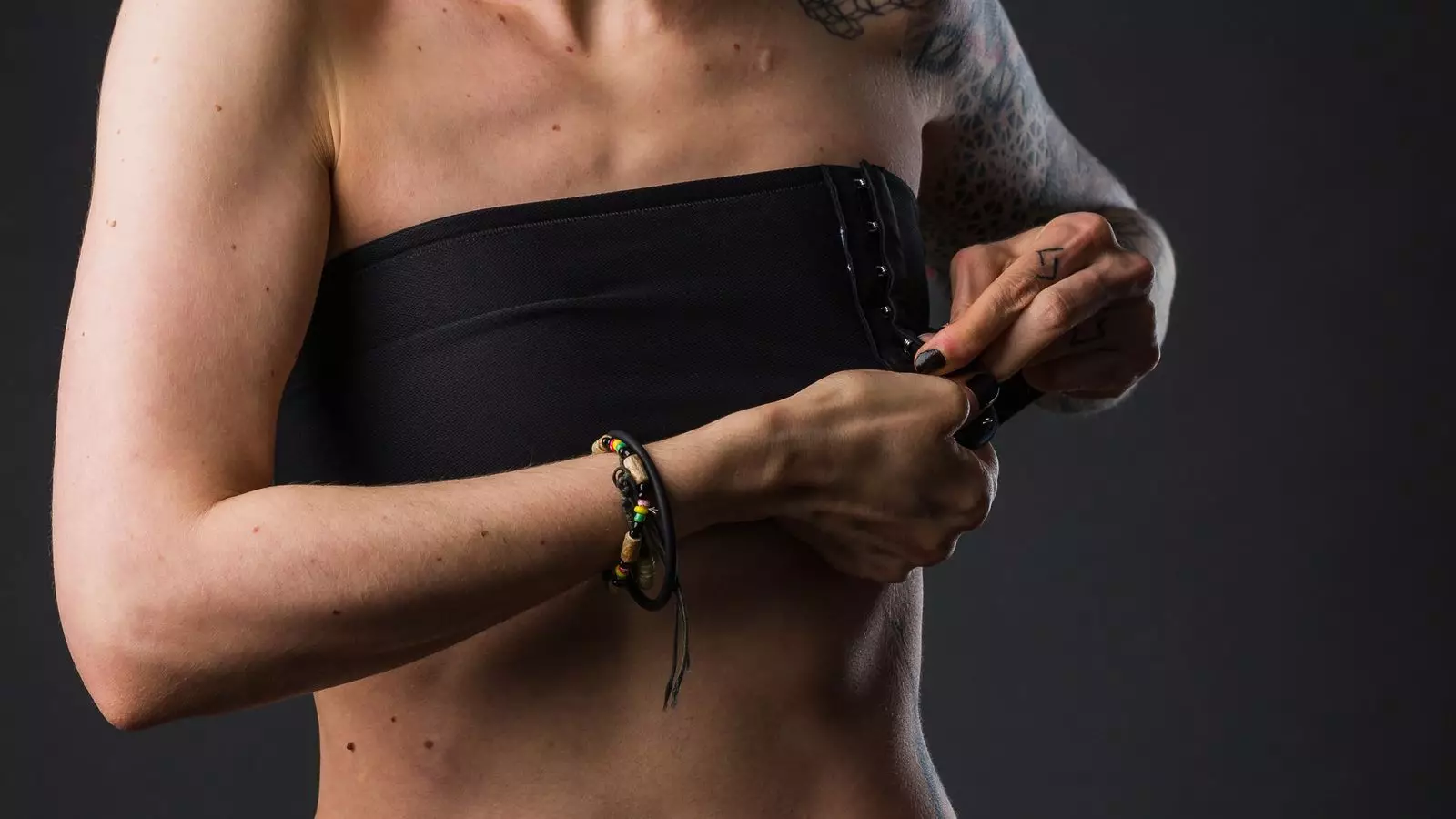In a move that has sparked significant debate and criticism, Bannerman High School in Glasgow organized a fundraising event with the intention of purchasing chest binders for transgender students. This initiative, which included a coffee morning for staff, involved a nominal £2.50 entry fee aimed at supporting a cause championed by younger pupils advocating for equality and transgender rights. Yet, what began as an effort to promote inclusivity has morphed into a contentious discussion concerning safety, parental involvement, and the appropriateness of such actions within a school setting.
Chest binders serve a specific purpose for many transgender individuals, particularly for those who wish to achieve a flatter chest appearance. While they are designed to assist in gender expression, there are reported adverse effects from prolonged use. Issues such as back pain, breathing difficulties, and even more severe conditions like fractured ribs can arise. Due to these potential risks, organizations such as For Women Scotland have labeled the sale and fundraising for chest binders as an alarmingly hazardous practice. They likened the situation to the illegal act of breast ironing, indicating a broader concern about how society addresses body image and health for vulnerable populations, particularly minors.
The controversy extends beyond the binders themselves; it raises poignant questions about the responsibilities of educational institutions. Some educators at Bannerman High have stated that they were not consulted before the fundraiser was announced. Such lapses in communication have led to a significant unease among staff regarding the implications of the school’s actions. One teacher expressed concern about the lack of parental consent and the sensitivity inherent in matters related to gender identity. This leads to an essential dialogue about what role schools should play when it comes to health and well-being interventions that have complex emotional and physical aspects attached to them.
Political figures have also weighed in on the debate. Scottish Conservative’s shadow equalities minister Tess White MSP criticized the fundraiser, echoing concerns that the school was treading dangerous territory by supporting a cause that involves health risks associated with chest binders. The fears voiced by various community members signal a growing need for education systems to tread thoughtfully when addressing complex issues like gender identity, particularly when such actions could inadvertently put students’ health at risk.
In the wake of the backlash, Bannerman High School announced that the funds raised during the coffee morning would be redirected towards different equality initiatives rather than being specifically allocated to chest binders. This pivot reflects a recognition of the pressing need for stakeholder involvement, including parents and health professionals, in discussions that can significantly impact young people’s lives. This decision underscores the importance of collaborative efforts in educational settings where sensitive health-related matters are concerned.
The situation at Bannerman High School illuminates broader societal challenges dealing with gender identity, health, and safety within educational environments. It serves as a reminder that while promoting equality for transgender individuals is essential, it must be balanced with a rigorously cautious approach to health implications and parental engagement. As schools strive to create inclusive environments, comprehensive policies that include expert consultation and community dialogue will be vital in ensuring that student safety and well-being remain a priority while fostering a supportive atmosphere for all. Engaging parents, staff, and health professionals will only strengthen future initiatives, helping predict and mitigate concerns before they escalate into public controversies.


Leave a Reply